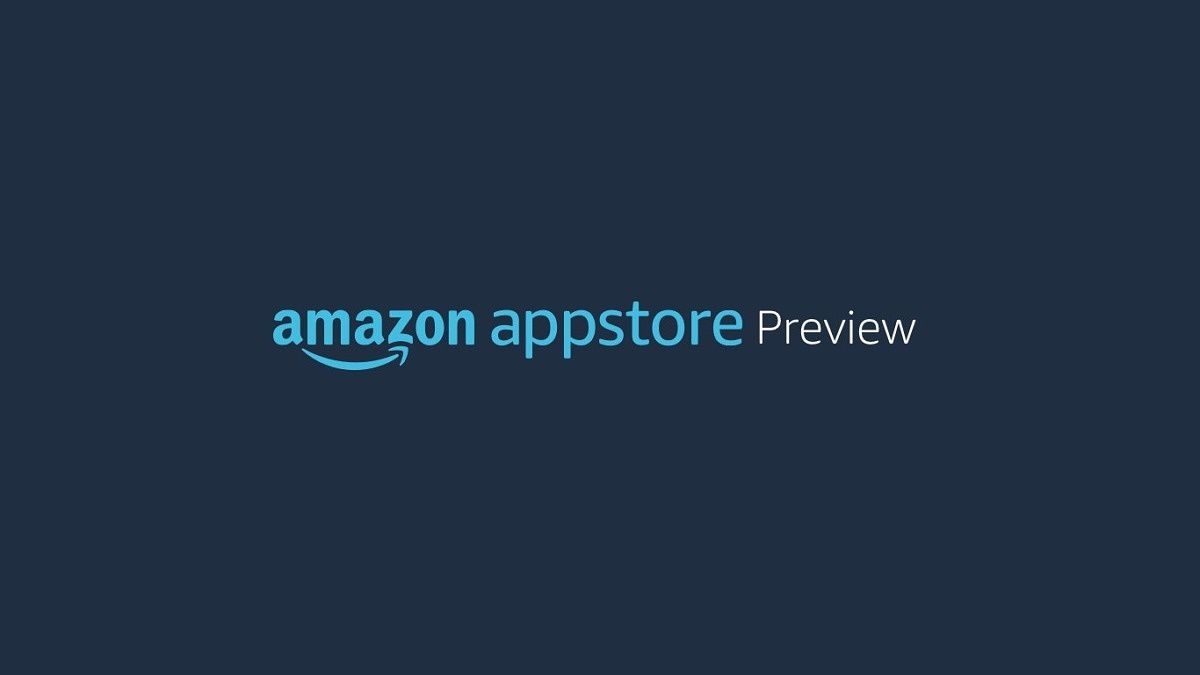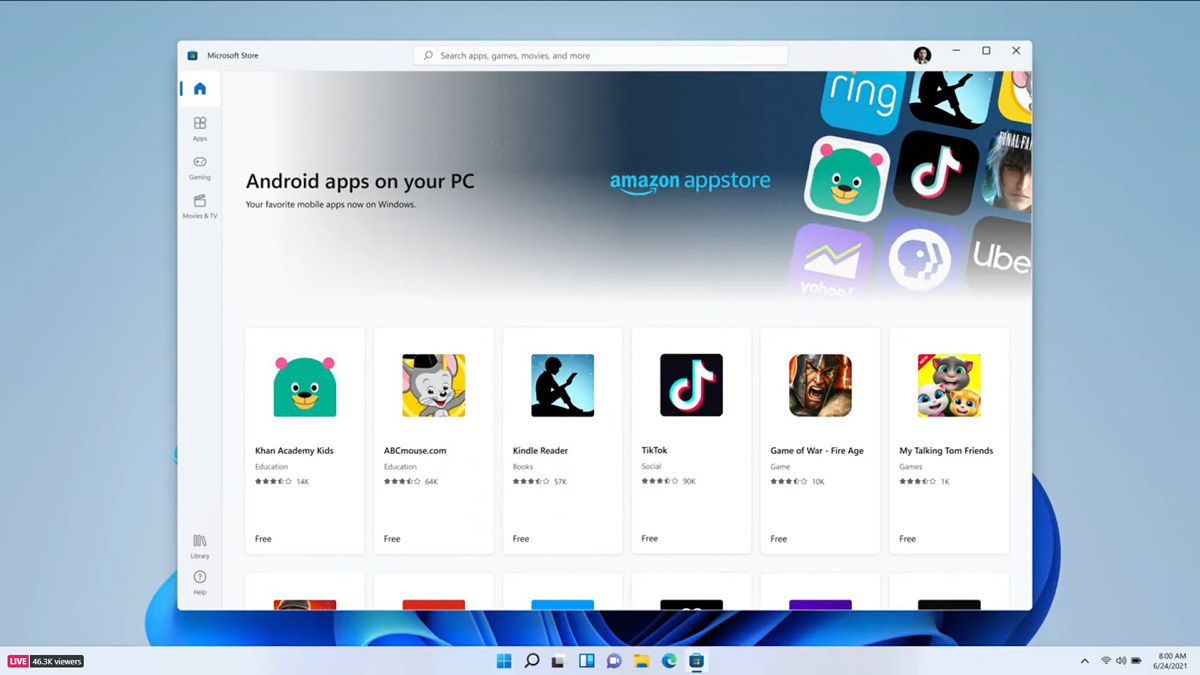Just a couple of weeks ago, the Windows Subsystem for Android showed up in the Microsoft Store, even if it didn't do anything for people that downloaded it. Now, as spotted by Microsoft leakster WalkingCat, the other piece of the Android app puzzle has arrived. The listing for the Amazon Appstore in the Microsoft Store has appeared.
When Microsoft first announced Windows 11 back in June, it announced that the OS would support Android apps. But when the firm announced the OS's release date, it confirmed that Android support was delayed. But while the general public is likely going to be waiting until next year, both Microsoft and Amazon have held true to the idea that Insiders are going to get it this year.
Here's how it will work. Android apps on Windows 11 will use the Windows Subsystem for Android. That's all you need, as just like any other app, you can install an APK from anywhere. However, there's also going to be Amazon Appstore integration with the Microsoft Store. Once you go to download an app from that listing, it will direct you to the actual Amazon Appstore, which comes from the listing linked to above, and you'll get the app from there.
Amazon Appstore support comes as part of a broader initiative from Microsoft to make third-party app stores first-class citizens on Windows. It's just that this one happens to be the partner to bring Android app support to Windows 11. The Redmond firm has been clear that we may see other app stores integrate with the Microsoft Store in a similar way.
As of right now, you would need to redeem a code to download the Amazon Appstore from the listing. It also wouldn't even work unless you had the Windows Subsystem for Android. Just like on the Windows Subsystem for Android listing that was discovered two weeks ago, the minimum requirements listed are Windows 11 build 220000 or higher, and an ARM, Intel, or AMD processor. It says it's supported by 32-bit processors, but that probably just makes them 32-bit builds, since 32-bit versions of Windows don't exist anymore.
Today's news really just means that we're one step closer to public testing. The official word at the end of August is still that it will arrive in the coming months.


